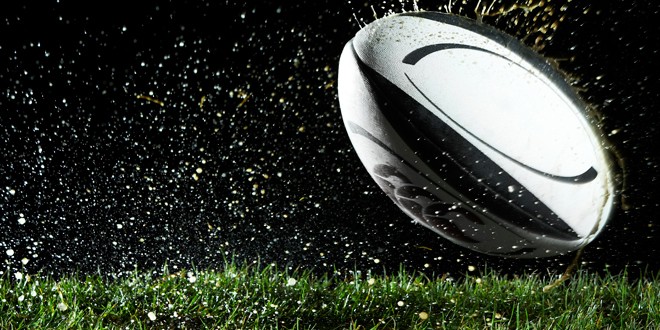

Regular readers will know of my fondness for the grass roots of the game in Old Blighty, especially some of the clubs with an interesting history, or players who have gone on to become famous or come from a town linked to one or more of my ancestors.
There was the Chesterfield Spires, named after the church with the twisted steeple where one of my great-grandmothers, Agnes Worrall, was baptised.
She was later to live for decades with my great-grandfather Alfred Cupit at a nearby village as his ‘housekeeper’ where she gave birth to my illegitimate grandmother. Of course, my family never talked about this!
Sadly, the Spires never quite made it to the top. But I still wear my replica Chesterfield jumper during cold winter afternoons.
Then there was Eccles, the club where I believe Adrian Morley got his start. Until I started covering Rugby League the only Eccles I knew was the character in the Goon Show.
I had also heard of Eccles cakes. To this day I have never tasted this gourmet delight, although I am somewhat turned off by one local nickname, squashed fly cake.
Then there is Flimby and Fothergill. Every League fan worth his salt knows of the club’s record 116-0 defeat at the hands of Wigan back in a round of the 1924-25 Challenge Cup. My lightweight Flimby polo shirt is getting a bit threadbare these days, some 12 years after I first pulled it on. But I still wear it with pride in the summer.
I was reminded of my love affair with the cold north-west when I received an email the other day from a fan named Shaun McMullen asking for advice about which NRL games he should attend during an upcoming visit to God’s Own Country.
“I grew up a few miles away from a team in Cumberland you have mentioned a few times – Flimby and Fothergill,” Shaun wrote.
“My grandad was a coal miner at Fothergill pit for a while.”
I have also this week added another small English club to the list of my favourites.
In my other life as a travel writer, I was researching a story on Southampton’s links with British aviation history.
And during my trawl through stories on the internet I came upon the Southampton Spitfires side.
In three weeks time it will be the 80th anniversary of a failed test flight for the Supermarine 224 at an aerodrome in Southampton – but one with a very successful conclusion.
With a heavy heart, the downcast chief designer, RJ ‘Reg’ Mitchell, left the bleak airfield that morning and went back to his drawing board.
Mitchell was determined he would not be beaten. And within two years he had created arguably the most famous fighter aircraft the world has ever known, the Spitfire.
Board members of Supermarine Aviation, the company which employed Mitchell, gave the aircraft its name. It was an old English word dating back to the 16th century basically meaning a feisty person.
Mitchell apparently was unimpressed, and is reported as saying, “Spitfire was just the sort of bloody silly name they would choose.”
The players at the Southampton Spitfires would surely beg to differ!
Now to a more gloomy note.
We’ve all heard the words, “that which we call a rose, by any other name would smell as sweet”. Maybe in Shakespeare’s Romeo and Juliet it is the case.
But what about a beer by any other name? Would it taste as good? Not necessarily!
A few weeks ago I wrote about the changing names of Rugby League grounds in Australia. Well, another one is about to bite the dust, thanks to a giant brewery.
Bluetongue Stadium in Gosford on the NSW Central Coast, which hosts half-a-dozen NRL games every season, will be looking for a new moniker.
It’s all because the brewing giant SABMiller has decided to buy 100 per cent of the Bluetongue brewery at nearby Warnervale and close it down.
And no one is happy. I was already angry because SABMiller had forced me to sell my handful of shares in Fosters to them when they took over complete control of the company in Australia.
Experts are saying Bluetongue has bitten the dust because the bosses want to push their major labels and don’t want to confuse the drinkers with too many names.
Well, we definitely will be confused now.
From 1915 to 1939 the arena was called Waterside Park, before being renamed Grahame Park after a former mayor of Gosford. Since 2006 it has been Bluetongue.
Alan Asher, a former Australian Commonwealth ombudsman, was shocked by Bluetongue’s demise.
“Bluetongue has a great little story and potentially a great future,” he said.
“It isn’t being closed because it was a failure or because people didn’t like it.
It’s been closed because a giant global firm, the tenth-largest on the UK stock exchange and the second-largest brewer in the world, finds it convenient to snuff out this tiny speck of a potential competitor.”
Perhaps we should rename the arena Alan Clark Stadium, to remind Rugby League fans of the British boss responsible for the naming-rights confusion and the death of such a pleasant brand of the singing syrup.
